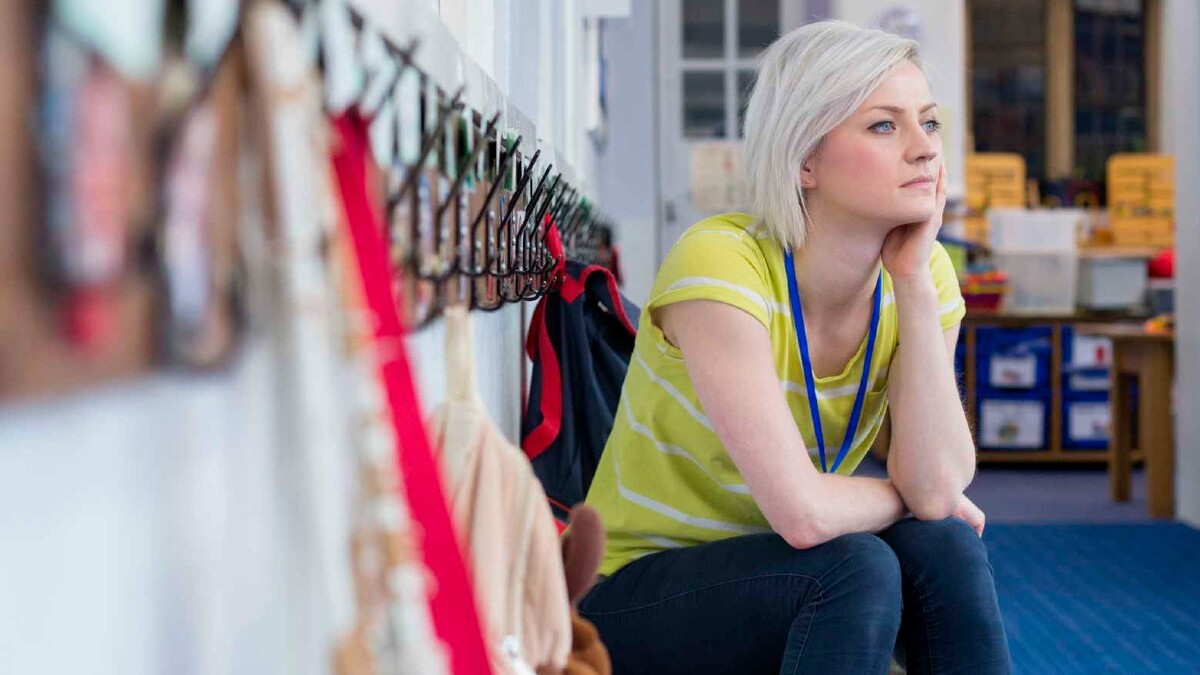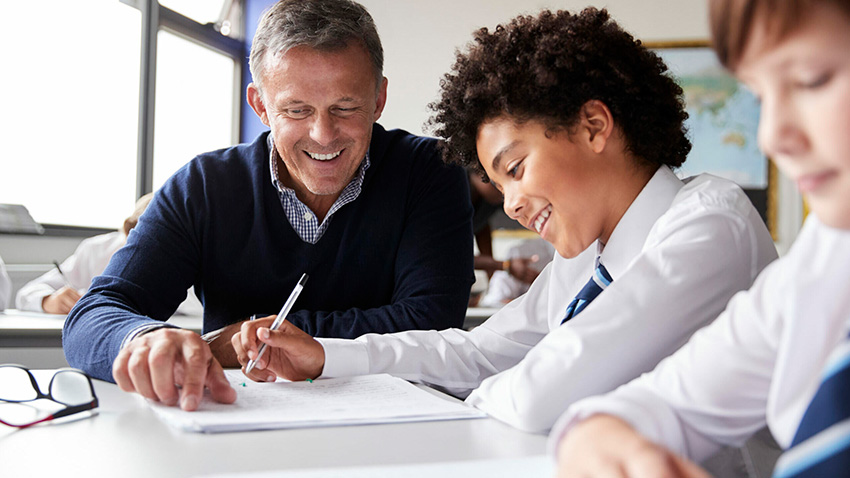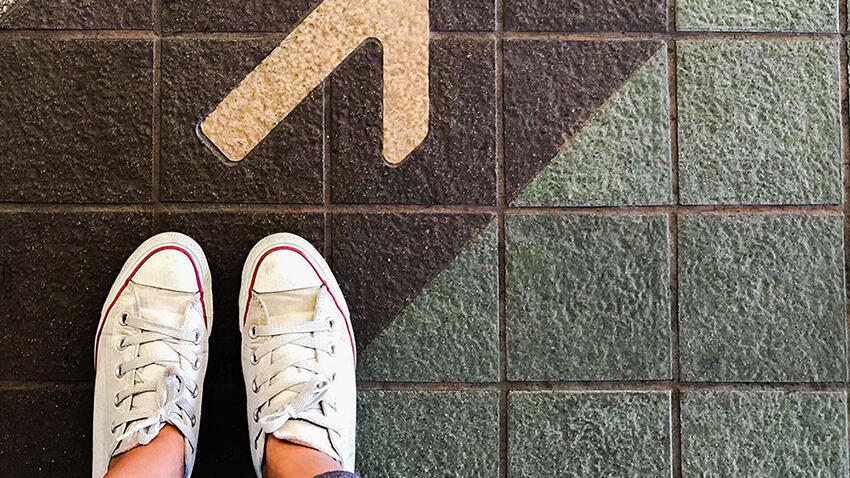How reflecting on their “why” will help teachers recover and re-engage these festive holidays: A guide with headspace Schools
Hannah Jamieson, National Education Advisor for headspace Schools, knows only too well how easy it is for teachers to feel depleted by the time they reach the end-of-year school holidays. It’s through no fault of their own, nor their schools, but quite simply because teaching is a career in which they willingly give so much of themselves. Add to this the fact that this past year, yet another year of confusion and disarray caused by snap and prolonged COVID-19 lockdowns, has piled additional pressures on teachers quite unlike any other.
A former secondary school teacher for 15 years, Hannah now dedicates herself in her current role to helping school leaders enact wellbeing for themselves and their students through practical strategies that they can use particularly during the precious holiday time. “We support schools in co-creating a mentally healthy generation from birth through to 18,” she says. “To do that, the school leaders themselves need to embrace healthy practices.”
According to Hannah, those practices are largely governed by three Rs: Rest, Recovery and Re-engagement. Observing them gives teachers a ‘box of tools’ to carry with them into school holidays, so that they can emerge fully recuperated.
She says: “Teaching is now not just about the curriculum, but also as a teacher of wellbeing. This can add to the workload of a teacher, which is why it’s so important for educators to prioritise their self-care”
Rest, recover and re-engage: Teachers’ essential three Rs during the holidays
Rest, which we covered in part one of our blog series with headspace Schools, is the principal foundation of mental wellness. As we’ve already covered, authentic rest comes in many forms, of which quality sleep is one. Going without sleep can have an notable impact on your sense of wellbeing Unfortunately we teachers can at times believe that we can push ourselves that bit further for the greater good (i.e., our students’ futures). But inadequate sleep can, and it does, take a significant toll on our mental and physical wellbeing.
Equally critical to school leaders wanting to bring their best to their role, and to feeling their best in it, are the stages of recovery and re-engagement. “There are some great tips for navigating both during the upcoming holidays,” says Hannah.
Recover: Step-by-step homework for teachers
1. Collect the facts about your positive habits and their consequences
Finding your way back to your best self requires some reflection, as well as going on a fact-finding mission. What were your daily habits when you were last on form? “If you’re a natural journal writer you might find that this exercise is easy,” says Hannah. “Take your mind back to some of your most upbeat periods, and note what kinds of activities you engaged in at that time.”
Perhaps the last time you felt topped up with exuberance, you were eating healthily and exercising, sleeping more or socialising regularly.
However, if you, like many, don’t tend to write things down, asking close family and friends about their observations could be insightful. They tend to notice all our habits a little more accurately than we do in ourselves – and when we’re already very depleted and emotional, it can be a lot more difficult for us to take stock dispassionately. “The thing to remember is, you’re not going to be able to access this information when you’re already exhausted. That’s why it helps to journal or ask others,” says Hannah.
2. Reconnect to your ultimate purpose
During the latter half of the school summer holidays, and once you’ve given yourself the space to properly top up on rest, the chances are you’ll start to move into thinking about the year ahead. The most powerful thing to do at this point, advises Hannah, is to start by looking at the bigger picture and reaching within for your personal and professional mission statement – your “why”.
“Teaching is an amazing profession in which you fundamentally influence young people’s experience of the world. Reminding yourself of that can be enough to re-energise you,” says Hannah. Similarly knowing your specific currency also can be restorative. “My ‘pay’ is seeing the light go off in kids’ heads,” says Hannah.
If you’re finding it hard to reach this insight, it can help to make yourself a list of examples of the times that you felt most aligned in your day-to-day teaching, or the moments that you could see the impact you’ve had. If necessary, ask for outside help with this. Simon Sinek, the thought leader best known for his now-infamous TED Talk on the power of “why”, offers this simple and powerful post-COVID exercise to do with a close friend.
Re-engage
1. Self-compassion
When it comes to re-engagement it’s worth noting that self-care, such as we advise for getting good rest, and self-compassion are very different things. Self-care is the ‘doing’. Self-compassion is how we see and talk to ourselves. If we feel that something has gone horribly wrong at school, no amount of tea and sunshine is going to fix it. And that’s why re-engagement must be about self-compassion.
At the point of readying ourselves to re-engage with a new school term, we should be very forgiving of ourselves for anything that didn’t go the way we wanted it to during the past year. This is a time to actively think through our strategies for the new year, with a positive mindset.
Dr Kristin Neff, associate professor, researcher and author of Self Compassion: The Proven Power of Being Kind to Yourself, says: “By losing our fear of failure, we become free to challenge ourselves to a far greater degree than would otherwise be possible.” She explores the steps to help you get there in her most well-known TED Talk on self-compassion.
2. Identify your negative self-talk
Going one step further, you could pinpoint specific thought distortions and rationalise them before re-engaging with your role. These might be things such as ‘People don’t like me because I talk too much during meetings,’ or ‘I’m not as good with the kids as the other teachers’.
Hannah says: “If I’m feeling things are tough, I actually write down that negative self-talk and come back to them with a clear mind the next day. Make sure to challenge yourself over them though, instead of just noting them down. For example, ask yourself: ‘Is that really (or always) true? Is doing that sometimes a good thing?’” Seeing negative self-talk in the cold light of the next day can help us to reframe our thinking for what it is, and restore our confidence.
Ready for anything
There’s little doubt that COVID-19 took more of a toll on teaching than many other professions. A survey by The University of Melbourne revealed: “68 per cent of primary teachers and 75 per cent of secondary teachers report working more hours per week while they moved to remote teaching.”
Still, giving ourselves due credit for having weathered this exhausting storm and emerging strong out the other side is a choice. We can make use of tools such as the three Rs to fully replenish our minds and bodies, re-establish the reasons why we chose to become educators, and look towards a fulfilling and impactful future.
If you’re a teacher or school leader interested in more guidance about staying well and supporting your students in staying well too, read more about the Be You framework here.
*headspace Schools is a division of headspace the National Youth Mental Health Foundation. headspace Schools is a national workforce that supports, engages and partners with education and health sectors across Australia, to build the mental health literacy and capacity of workforces. Be You is national mental health initiative led by Beyond Blue in collaboration with headspace and Early Childhood Australia to support educators from early learning services and schools to develop a positive, inclusive and resilient learning community.
About the author
Kayleigh Kahlefeldt
Founder, Cornerstone Content
You might also like
Want to learn more about our tailored solutions?
Chat to one of our assessment or learning consultants today.
or call us on 1300 857 687 (Australia) or +61 2 6652 9850 (International)




